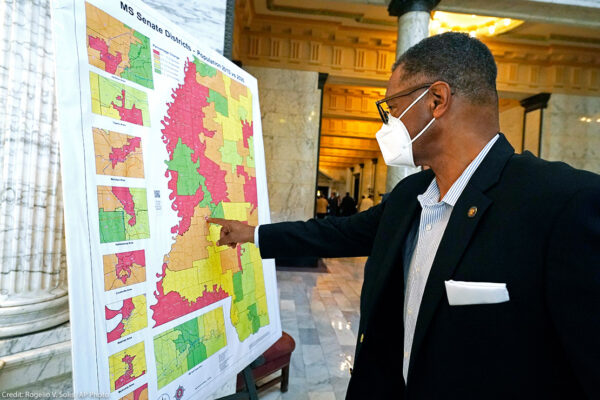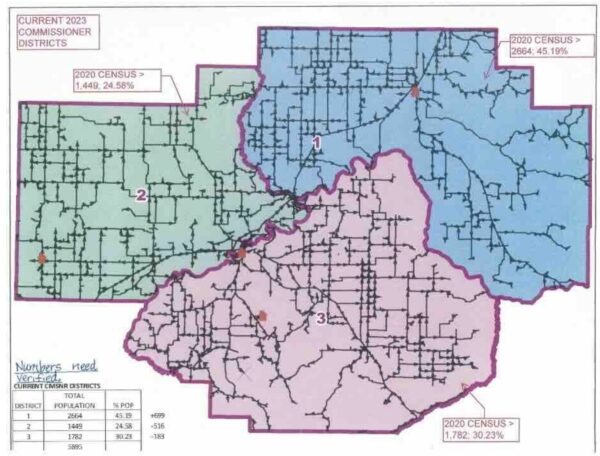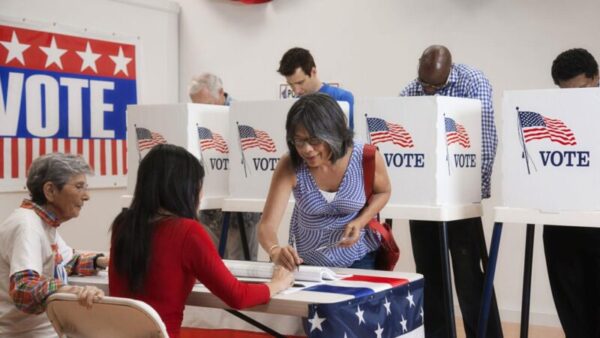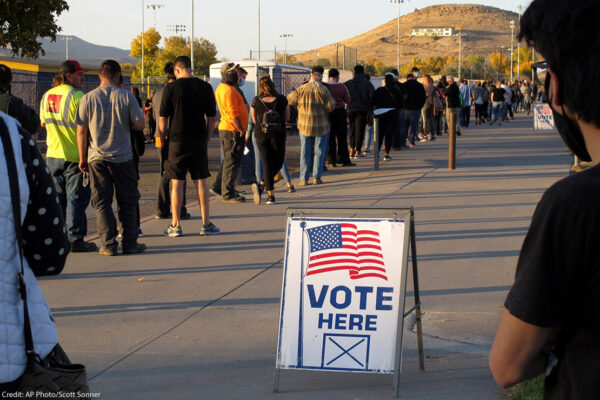The Voting Rights Act
White v. Mississippi State Board of Elections
District lines used to elect MississippiÔÇÖs Supreme Court have gone unchanged for more than 35 years. WeÔÇÖre suing because the current lines crack the Mississippi Delta and dilute the voting strength of Black Mississippians in state Supreme Court elections, in violation of the Voting Rights Act.
Status: Ongoing
View Case
Learn ║ýđË╩ËĂÁ The Voting Rights Act
Featured
U.S. Supreme Court
Nov 2025

The Voting Rights Act
Racial Justice
Allen v. Milligan
Whether AlabamaÔÇÖs congressional districts violate Section 2 of the Voting Rights Act because they discriminate against Black voters. We succeeded in winning a new map for 2024 elections which, for the first time, has two congressional district that provide Black voters a fair opportunity to elect candidates of their choosing despite multiple attempts by Alabama to stop us at the Supreme Court. Despite this win, Alabama is still defending its discriminatory map, and a trial was held in February 2025 to determine the map for the rest of the decade.
In May 2025, a federal court ruled that Alabama's 2023 congressional map both violates Section 2 of the Voting Rights Act and was enacted by the Alabama Legislature with racially discriminatory intent.
U.S. Supreme Court
Oct 2025

The Voting Rights Act
State Board of Election Commissioners v. Mississippi State Conference of the NAACP
Mississippi has a growing Black population, which is already the largest Black population percentage of any state in the country. Yet. Black Mississippians continue to be significantly under-represented in the state legislature, as MississippiÔÇÖs latest districting maps fail to reflect the reality of the stateÔÇÖs changing demographics. During the 2022 redistricting process, the Mississippi legislature refused to create any new districts where Black voters have a chance to elect their preferred representative. The current district lines therefore dilute the voting power of Black Mississippians and continue to deprive them of political representation that is responsive to their needs and concerns, including severe disparities in education and healthcare.
U.S. Supreme Court
Oct 2025

The Voting Rights Act
Louisiana v. Callais (Callais v. Landry)
Whether the congressional map Louisiana adopted to cure a Voting Rights Act violation in Robinson v. Ardoin is itself unlawful as a gerrymander.
All Cases
16 The Voting Rights Act Cases

Montana
Dec 2025
The Voting Rights Act
Chippewa Cree Indians of the Rocky Boy's Reservation v. Chouteau County
Representing the Chippewa Cree Indians of the Rocky BoyÔÇÖs Reservation and two Native American voters living in Chouteau County, Montana, the ║ýđË╩ËĂÁ, ║ýđË╩ËĂÁ of Montana, and Native American Rights Fund (NARF) challenged the holding of at-large elections for the Chouteau County Board of Commissioners. The suit alleges the system unlawfully dilutes the voting strength of Native American voters in the county and has denied them any representation on the county commission for more than a decade.
Explore case
Montana
Dec 2025

The Voting Rights Act
Chippewa Cree Indians of the Rocky Boy's Reservation v. Chouteau County
Representing the Chippewa Cree Indians of the Rocky BoyÔÇÖs Reservation and two Native American voters living in Chouteau County, Montana, the ║ýđË╩ËĂÁ, ║ýđË╩ËĂÁ of Montana, and Native American Rights Fund (NARF) challenged the holding of at-large elections for the Chouteau County Board of Commissioners. The suit alleges the system unlawfully dilutes the voting strength of Native American voters in the county and has denied them any representation on the county commission for more than a decade.

South Carolina
Dec 2025
The Voting Rights Act
NAACP South Carolina State Conference v. Wilson
All voters with disabilities have the right to receive assistance voting from a person of their choice. South Carolina prohibits some voters with disabilities from receiving assistance and limits who voters can rely on for assistance. Voters with disabilities and the NAACP South Carolina State Conference sued to challenge those laws under Section 208 of the Voting Rights Act and protect disabled votersÔÇÖ right to assistance.
Explore case
South Carolina
Dec 2025

The Voting Rights Act
NAACP South Carolina State Conference v. Wilson
All voters with disabilities have the right to receive assistance voting from a person of their choice. South Carolina prohibits some voters with disabilities from receiving assistance and limits who voters can rely on for assistance. Voters with disabilities and the NAACP South Carolina State Conference sued to challenge those laws under Section 208 of the Voting Rights Act and protect disabled votersÔÇÖ right to assistance.

North Carolina
Nov 2025
The Voting Rights Act
North Carolina State Conference of the NAACP v. Berger
In 2023, North Carolina legislators enacted a congressional map that diluted the voice and voting power of Black North Carolinians. Plaintiffs sued to enjoin that map. After a trial on the merits, North Carolina engaged in unprecedented mid-decade redistricting to target Black voters in Congressional District 1.
Explore case
North Carolina
Nov 2025

The Voting Rights Act
North Carolina State Conference of the NAACP v. Berger
In 2023, North Carolina legislators enacted a congressional map that diluted the voice and voting power of Black North Carolinians. Plaintiffs sued to enjoin that map. After a trial on the merits, North Carolina engaged in unprecedented mid-decade redistricting to target Black voters in Congressional District 1.

Texas
Nov 2025
The Voting Rights Act
League of United Latin American Citizens (LULAC) v. Texas (Amicus)
In August 2025, during a special session called to further gerrymander TexasÔÇÖs congressional map, the StateÔÇÖs legislature passed a districting plan that weakens electoral opportunities for Black and Hispanic voters. Along with other partner civil rights and racial justice organizations, the ║ýđË╩ËĂÁ and ║ýđË╩ËĂÁ of Texas have filed an amicus brief in federal court to support plaintiffs challenging Texas's new maps. Our brief argues that TexasÔÇÖ justifications for mid-decade redistricting are baseless and emphasizes that lawmakers cannot augment their political power by intentionally harming Black and Hispanic voters.
Explore case
Texas
Nov 2025

The Voting Rights Act
League of United Latin American Citizens (LULAC) v. Texas (Amicus)
In August 2025, during a special session called to further gerrymander TexasÔÇÖs congressional map, the StateÔÇÖs legislature passed a districting plan that weakens electoral opportunities for Black and Hispanic voters. Along with other partner civil rights and racial justice organizations, the ║ýđË╩ËĂÁ and ║ýđË╩ËĂÁ of Texas have filed an amicus brief in federal court to support plaintiffs challenging Texas's new maps. Our brief argues that TexasÔÇÖ justifications for mid-decade redistricting are baseless and emphasizes that lawmakers cannot augment their political power by intentionally harming Black and Hispanic voters.

Alabama
Oct 2025
The Voting Rights Act
Alabama State Conference of the NAACP v. Allen
Alabama State Conference of the NAACP v. Allen challenges AlabamaÔÇÖs most recently drawn state legislative maps as dilutive of Black voting power in the state in violation of Section 2 of the Voting Rights Act of 1965.
Explore case
Alabama
Oct 2025

The Voting Rights Act
Alabama State Conference of the NAACP v. Allen
Alabama State Conference of the NAACP v. Allen challenges AlabamaÔÇÖs most recently drawn state legislative maps as dilutive of Black voting power in the state in violation of Section 2 of the Voting Rights Act of 1965.
